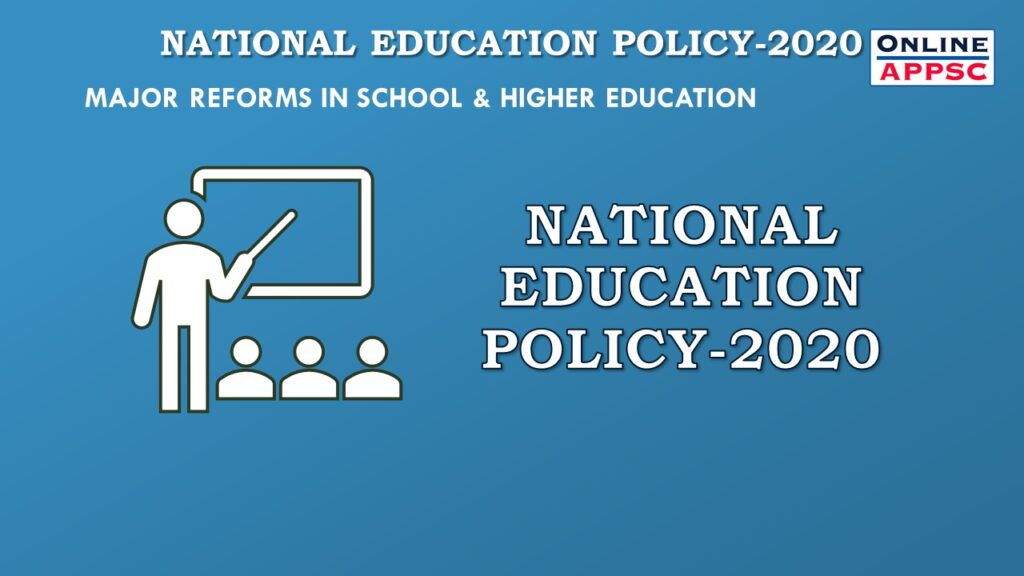
National Education Policy 2020
Major Reforms in School Education
The new education policy is going replace the 10+2 structure of school curricula by a 5+3+3+4 curricular structure corresponding to ages 3-8, 8-11, 11-14, and 14-18 years respectively.
The new system will have 12 years of schooling with three years of Anganwadi/pre schooling.
The policy has emphasized mother tongue/local language/ regional language as the medium of instruction at least till Grade 5, but preferably till Grade 8 and beyond.
Sanskrit to be offered at all levels of school and higher education as an option for students, including in the three-language formula.
Other classical languages and literatures of India also to be available as options. No language will be imposed on any student.
All students will take school examinations in Grades 3,5, and 8 which will be conducted by the appropriate authority.
Board exams for Grades 10 and 12 will be continued, but redesigned with holistic development as the aim.
A new National Assessment Centre, PARAKH (Performance Assessment, Review, and Analysis of Knowledge for Holistic Development), will be set up as a standard-setting body.
Mathematical Thinking & Scientific Temper (coding from class 6)
National Education Policy 2020 removed the rigid separations between arts and sciences, between curricular and extra-curricular activities, between vocational and academic streams.
Vocational education will start in schools from the 6th grade, and will include internships.
Major Reforms in Higher Education:
Multiple Entry and Exit Points with appropriate certification. UG education can be of 3 or 4 years with multiple exit options and appropriate certification within this period.
For example, Certificate after one-year, Advanced Diploma after 2 years, Bachelor’s Degree after 3 years and Bachelor’s with Research after 4 years.
Higher education Commission of India (HECI) will be set up as a single overarching umbrella body for the entire higher education, excluding medical and legal education.
A National Mission for Mentoring will be established, with a large pool of outstanding senior/retired faculty.
Efforts will be made to incentivize the merit of students belonging to SC, ST, OBC, and other SEDGs.
The National Scholarship Portal will be expanded to support, foster, and track the progress of students receiving scholarships.
An Academic Bank of Credit is to be established for digitally storing academic credits earned from different HEIs so that these can be transferred and counted towards final degree earned.
